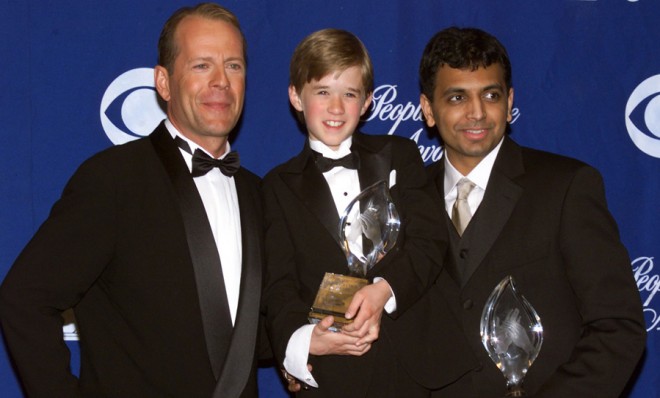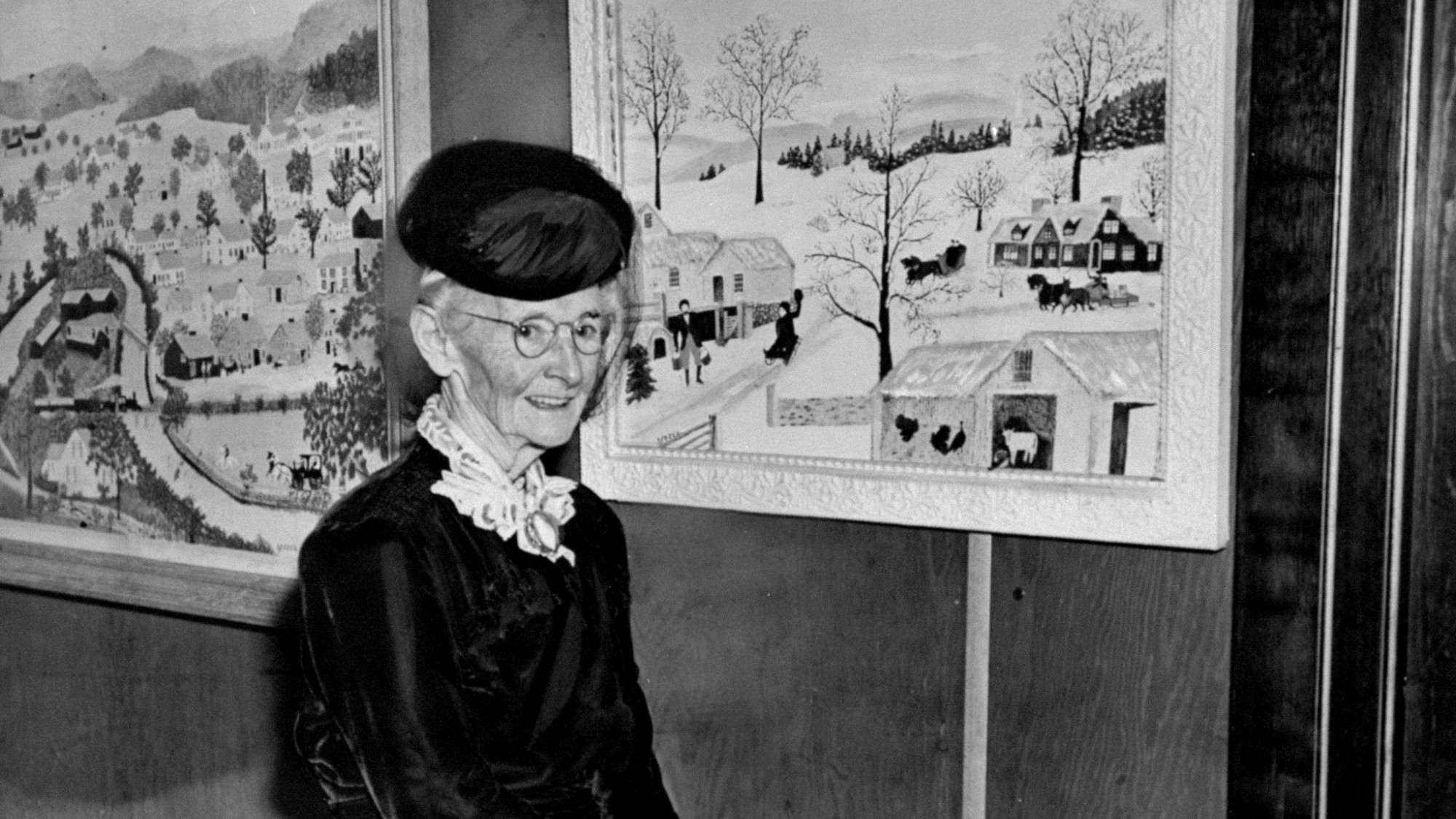What happened to M. Night Shyamalan?
The director was once crowned "the next Hitchcock." Today, he's an awfully long way from The Sixth Sense. Here's an in-depth look at what went wrong.


Sony Pictures doesn't want you to know that M. Night Shyamalan directed After Earth. The new sci-fi blockbuster, which stars Will Smith and his son Jaden, hits theaters tomorrow after a marketing campaign that has buried Shyamalan's name so far down that you probably didn't know he had directed it. It is, I imagine, an inauspicious position for Shyamalan — a director who was once widely and hyperbolically hailed as "the next Hitchcock" — to find himself in.
Let's go back to 1999, when Shyamalan first broke into the Hollywood mainstream. He was the writer and director behind the supernatural drama The Sixth Sense, and the screenwriter for the family film Stuart Little. (The Stuart Little script is less remarked upon.) When The Sixth Sense hit theaters in August 1999, the word of mouth was so good that the movie actually grossed more in its second week of release than its first, and it stayed at the top of the U.S. box office for five consecutive weeks, earning $293 million domestically and another $379 million abroad, as well as a nomination for Best Picture.
Anticipation was understandably high for Shyamalan's follow-up, Unbreakable, which reunited Shyamalan with Bruce Willis for a deconstruction of the superhero genre before superheroes took over the modern Hollywood blockbuster. His next film, the spiritual alien-invasion drama Signs, was even more warmly received than Unbreakable, though grumbling about Shyamalan's over-reliance on twists was starting to get louder.
The Week
Escape your echo chamber. Get the facts behind the news, plus analysis from multiple perspectives.

Sign up for The Week's Free Newsletters
From our morning news briefing to a weekly Good News Newsletter, get the best of The Week delivered directly to your inbox.
From our morning news briefing to a weekly Good News Newsletter, get the best of The Week delivered directly to your inbox.
So what happened? It's actually fairly easy to pinpoint the moment when Shyamalan's career began to implode: Jan. 8, 2004, when the Sci-Fi Channel aired a much-hyped three-hour "documentary" called The Buried Secret of M. Night Shyamalan, designed to promote his next film, The Village.
"Chapter One: Not All Things Are Tricks," read the grandiose title card at the opening — an unfortunate turn of phrase, since the entire documentary turned out to be a trick, and a bad one. The Buried Secret was both unbearably dull and painfully, obviously fake. The crew had mysterious "technical problems" whenever Shyamalan was around. The "buried secret" itself: that Shyamalan had somehow survived an apparent drowning at age 11 after spending 35 minutes at the bottom of a pond, and that the experience had given him strange and otherworldly powers.
Sci-Fi thought this utterly ridiculous story was intriguing enough to lie to the Associated Press about it, which dutifully issued a report about Shyamalan refusing to participate in the documentary when the questions got "too personal." When the hoax was eventually revealed, network president Bonnie Hammer conceded that Shyamalan had actually been "part of the creation from the very beginning." She explained that The Buried Secret was an attempt to replicate Shyamalan's movies, which make viewers walk away "not knowing what was real or not" — a statement that is patently untrue — but conceded that the viral stunt "probably went one step too far." In an age packed with viral marketing stunts, it's easy to see (and even sympathize with) how the push for The Buried Secret got out of hand.
But The Buried Secret was an uncomfortable and telling look at the unchecked ego of M. Night Shyamalan at the height of his career. Though his cameos initially seemed like a cute wink at his Hitchcockian aspirations, it became increasingly clear that Shyamalan was the opposite of the Wizard of Oz: He desperately wanted you to pay attention to the man behind the curtain. In The Village, his "cameo" morphed into a role that saw Shyamalan literally explaining the movie's twist to its lead characters.
A free daily email with the biggest news stories of the day – and the best features from TheWeek.com
Lady in the Water somehow took Shyamalan's apparent egotism even further when he cast himself as Vick Ran, the author behind The Cookbook — a book destined to inspire a future U.S. president, who would go on to change the entire planet for the greater. Yes, you read that right: M. Night Shyamalan, the writer and director of Lady in the Water, decided to cast himself as a writer so talented that he will literally change the world. Michael Bamberger wrote a book detailing Lady In The Water's troubled production, titled The Man Who Heard Voices: Or, How M. Night Shyamalan Risked His Career on a Fairy Tale. Later editions of the book were re-titled The Man Who Heard Voices: Or, How M. Night Shyamalan Risked His Career on a Fairy Tale and Lost.
20th Century Fox made one last attempt to trade on Shyamalan's name, billing 2008's laughable The Happening as "M. Night Shyamalan's first R-rated feature" in an attempt to convince moviegoers that he'd gotten his mojo back. But even if The Happening hadn't been terrible, the director's brand would have been irreparably tarnished. Upon the release of the trailer for Devil — the first in a planned series of films called "The Night Chronicles," which would see a variety of writers and directors tackling story concepts originally pitched by Shyamalan — there were widespread reports of laughter and groans by audiences as soon the title card "From the mind of M. Night Shyamalan" appeared. By the time his next film — a truly dismal summer blockbuster called The Last Airbender — hit theaters in 2010, it had been scrubbed clean of virtually all his standard directorial trademarks. The phrase "an M. Night Shyamalan film," which had been so essential to marketing his previous films, was barely visible over the title.
And now After Earth, the $130 million blockbuster, feels even less like a Shyamalan film than The Last Airbender, and more like a big-budget Smith family vanity project. (Will Smith came up with the original story for After Earth, and also serves as producer and star opposite his son Jaden.) After so many dismal films, you might be wondering, why would anyone want M. Night Shyamalan to direct their film?
There's a thing people tend to overlook about Shyamalan: Though his name is (probably irreparably) tarnished, he's incredibly consistent from a business perspective. Lady in the Water is the only genuine flop of his career, and that's only because he had built up enough power to make whatever he wanted without anyone stopping him — which was, as it turned out, a star-studded, $70 million adaptation of a weird bedtime story he made up for his kids. (Disney, to its credit, was smart enough to recognize a dud in the making; after "creative differences" arose, Shyamalan moved the film to Warner Bros., who happily — and, it turns out, stupidly — gave him free rein.)
But despite scathing reviews — 17 percent positive for The Happening, and 6 percent positive for The Last Airbender — both of Shyamalan's latest films were strong performers at the box office. The Happening nearly quadrupled its $48 million production budget, and The Last Airbender grossed over $300 million worldwide despite a cast of virtual unknowns (including star Noah Ringer, a 13-year-old boy who had never acted before). The Last Airbender may not have earned any love from critics or the Academy — though it did manage to scare up five Razzie Awards, including Worst Picture, Worst Director, and Worst Eye-Gouging Misuse of 3D — but it earned a tidy little profit for Paramount.
It's logical — but somehow vaguely disheartening — that Shyamalan is now embarking on the career for which he was probably always more qualified: Not as a distinctive and idiosyncratic director in the vein of Alfred Hitchcock, but as a Renny Harlin or a Louis Leterrier — a director who's just talented enough to add some verve to an otherwise undistinguished studio picture. He has wisely developed a sense of humor about himself and his work. ("#AFTEREARTH is opening in less than 3 weeks. May 31st," he tweeted earlier this month. "I hope people come. I figure if just the Indians come that's like 1 billion tickets.")
Whether you blame Shyamalan or not — I'm inclined to pin more of the blame on Smith — the negative reviews for After Earth are troubling; it's currently sitting at an awful 14 percent. Still, Shyamalan has hinted at upcoming projects, including a continuation of "The Night Chronicles" and sequels to The Last Airbender and Unbreakable. We don't know where Shyamalan's career will go next, or if he can ever redeem himself and win back the accolades from his earlier work. I certainly wouldn't bet on him, but I wouldn't count him out, either; he is, after all, the master of the twist.
Scott Meslow is the entertainment editor for TheWeek.com. He has written about film and television at publications including The Atlantic, POLITICO Magazine, and Vulture.
-
 Nursing is no longer considered a professional degree by the Department of Education
Nursing is no longer considered a professional degree by the Department of EducationThe Explainer An already strained industry is hit with another blow
-
 6 gripping museum exhibitions to view this winter
6 gripping museum exhibitions to view this winterThe Week Recommends Discover the real Grandma Moses and Frida Kahlo
-
 Why do Republicans fear swing state immigration raids in North Carolina?
Why do Republicans fear swing state immigration raids in North Carolina?Today’s Big Question Trump’s aggressive enforcement sparks backlash worries
